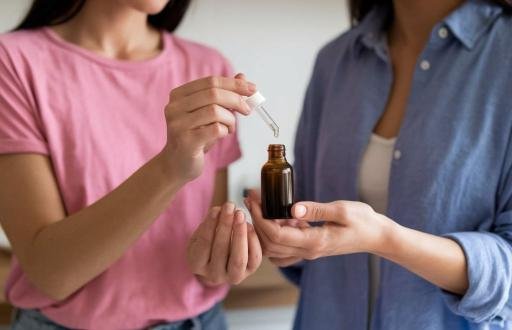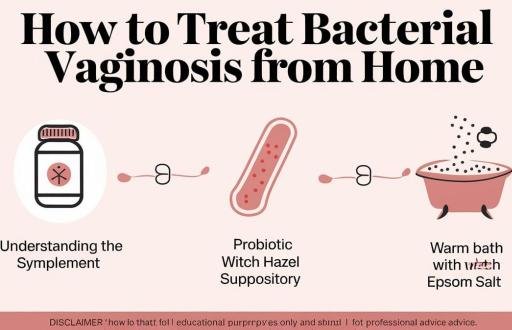Assess your risk of contracting bacterial vaginosis.
Bacterial vaginosis symptoms include:
- an odd discharge from the vagina that smells strongly of fish, especially after sex
- a shift in the discharge’s color and consistency, such as turning thin and watery and turning greyish-white
Symptomless bacterial vaginosis affects half of women.
Itching or soreness are uncommon side effects of bacterial vaginosis.
Look for other reasons for the unusual vaginal discharge if you’re not convinced it’s BV.

What takes place at your scheduled appointment
A general practitioner or sexual health clinic will want to rule out a STI and establish that you have bacterial vaginosis symptoms.
A doctor or nurse may examine your vagina and ask you about your symptoms.
To check for bacterial vaginosis and other infections, you can wipe the discharge inside your vagina with a cotton bud.
Bacterial vaginosis treatment
Antibiotic pills, gels, or creams are typically used to treat bacterial vaginosis.
A general practitioner or sexual health clinic prescribes these.
Your same-sex companion can also require treatment.
Bacterial vaginosis frequently recurs, usually in a few of months. You will typically receive further antibiotics to treat it if it recurs.
If it occurs more than four times a year, you can be prescribed an antibiotic gel to apply to your vagina. To help prevent bacterial vaginosis from recurring, you might need to use this for a few months.
The length of time you need to treat it will be advised by your doctor or sexual health clinic.
They can also assist in determining if your period or sexual activity is the cause of your bacterial vaginosis.
Things you can do on your own
You can take certain steps to lessen symptoms and stop bacterial vaginosis from recurring.
Do
- Wash your genital area with water and regular soap.
- use showers rather than bathtubs.
Don’t
- Avoid using bubble bath, shampoo, shower gel, or scented soaps in the bathtub.
- Avoid using vaginal douches, washes, or deodorants.
- Avoid using antiseptic solutions in the bathtub.
- Avoid washing your undergarments with powerful detergents.
- Avoid smoking.
Bacterial vaginosis causes
A shift in the normal balance of bacteria in your vagina is the cause of bacterial vaginosis.
Although the exact cause is unknown, you have a higher chance of getting it if:
- You engage in sexual activity, but bacterial vaginosis can also infect women who have never had sex.
- Your relationship has changed.
- An IUD (contraception device) is in your possession.
- You apply scented goods around or into your vagina.
Although sex can cause bacterial vaginosis, it is not a sexually transmitted infection.
During intercourse, a woman can transfer it to another woman.
Bacterial vaginosis increases your risk of contracting a sexually transmitted infection. This could be because it lowers the acidity of your vagina and weakens your body’s defenses against infection.
prenatal bacterial vaginosis
Antibiotic pills, gels, or creams are typically used to treat bacterial vaginosis.
But in most pregnancies, bacterial vaginosis does not create any complications.
If your vaginal discharge changes during pregnancy, consult your midwife or general practitioner.
Home Remedies for Bacterial Vaginosis
While home remedies can offer relief, it's essential to consult a healthcare provider for proper diagnosis and treatment, especially if symptoms persist or worsen. Here are some potential home remedies to consider:
Probiotics:
- Yogurt: Consuming yogurt with live and active cultures can help restore the balance of bacteria in the vagina.
- Supplements: Oral probiotic supplements containing Lactobacillus strains may also be beneficial.
Garlic:
- Topical application: Garlic has natural antibacterial properties. You can create a garlic clove suppository or insert a garlic-infused tampon.
- Oral consumption: Consuming garlic in your diet may also help.
Tea Tree Oil:
- Diluted solution: Mix a few drops of tea tree oil with a carrier oil like coconut oil and apply it topically to the affected area.
- Caution: Tea tree oil can be irritating, so use it with caution and discontinue if you experience any adverse reactions.
Over-the-Counter Treatments:
- Acidic douches: These can help restore the vaginal pH balance.
- Non-prescription antifungal creams: While primarily used for yeast infections, they may provide some relief in mild BV cases.
Important Considerations:
- Avoid irritants: Stay away from harsh soaps, douches, and perfumed feminine hygiene products.
- Wear breathable cotton underwear: Cotton allows for better airflow and reduces moisture buildup.
- Practice good hygiene: Cleanse the genital area gently with mild, unscented soap and water.
- Limit sugary foods: Excessive sugar intake can contribute to bacterial overgrowth.
Conclusion
While home remedies can offer temporary relief for mild BV cases, it's crucial to seek professional medical advice for proper diagnosis and treatment. Ignoring BV can lead to more severe complications, such as pelvic inflammatory disease. Remember, prevention is key. By maintaining good hygiene, practicing safe sex, and avoiding douching, you can reduce your risk of developing BV.
FAQ
Q: Can BV be cured completely with home remedies?
- A: While home remedies can alleviate symptoms, they may not completely eradicate the infection. It's essential to consult a healthcare provider for a proper diagnosis and treatment plan.
Q: How long does it take for BV to clear up with home remedies?
- A: The duration of treatment can vary depending on the severity of the infection and the effectiveness of the home remedies. It may take several weeks for symptoms to subside.
Q: Can BV lead to infertility?
- A: In rare cases, untreated BV can lead to pelvic inflammatory disease (PID), which can increase the risk of infertility. However, with timely treatment, the risk of infertility is significantly reduced.
Q: Is it safe to have sex during BV treatment?
- A: It's best to avoid sexual intercourse during BV treatment to prevent the spread of infection to your partner. Once the infection clears up, you can resume sexual activity.
Q: Can BV recur after treatment?
- A: BV can recur, especially if the underlying cause, such as hormonal imbalances or weakened immune system, is not addressed. Maintaining good hygiene and practicing safe sex can help prevent recurrent infections. Sources and related content

